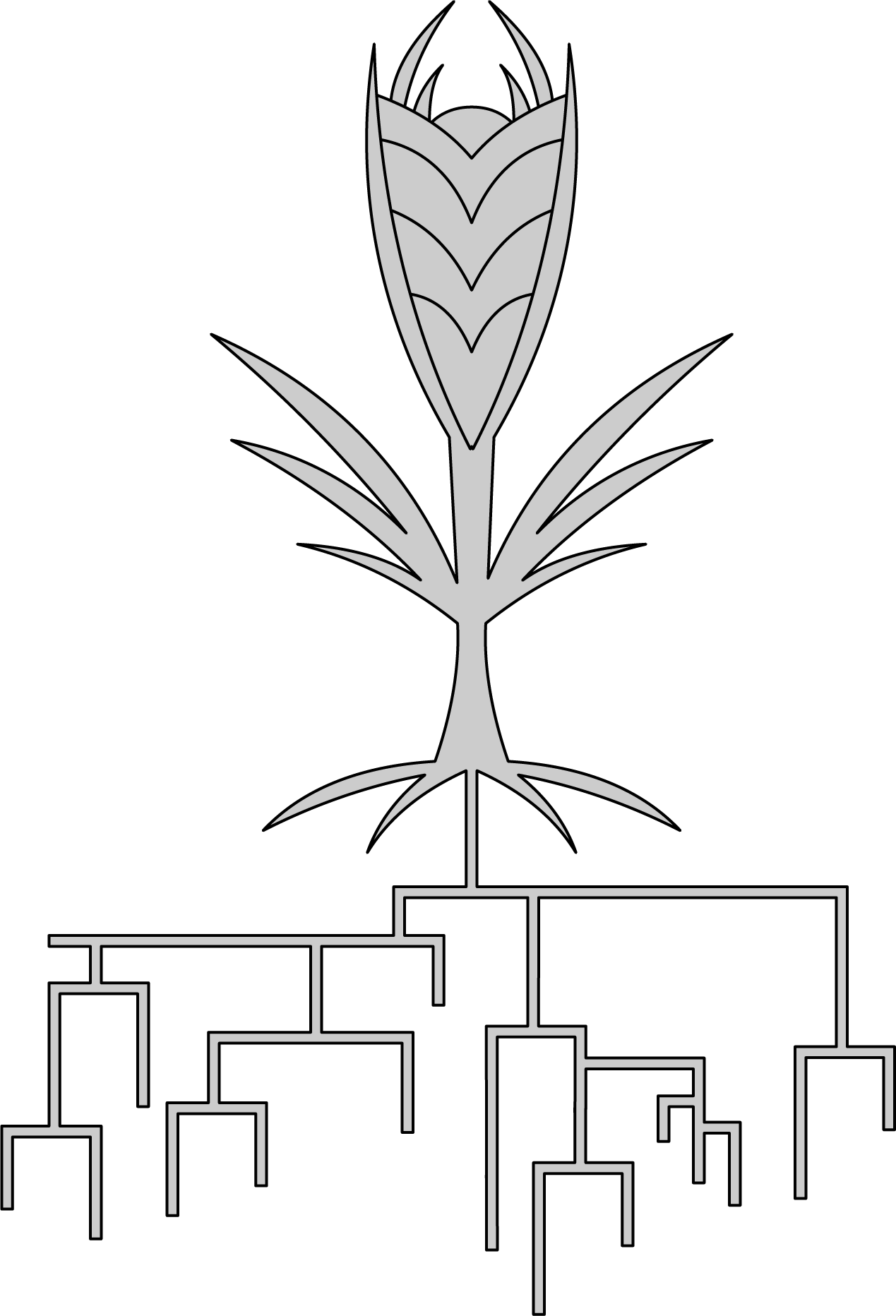December 2020 – The plant that lost its NLRs
Congratulations to Erin Baggs on collaborative work on a duckweed Wolffia! Wolffia is one of the plant species that has fewest NLRs (only 1 left), yet it is resistant to pathogens.
- Michael TP, Ernst E, Hartwick N, Chu P, Bryant D, Gilbert S, Ortleb S, Baggs EL, Sree KS, Appenroth KJ, Fuchs J, Jupe, Sandoval JP, Krasileva KV, Borisjuk L, Mockler TC, Ecker JR, Martienssen RA, Lam E “Genome and time-of-day transcriptome of Wolffia australiana link morphological extreme minimization with un-gated plant growth Genome Research, Dec 2020 (bioRxiv April 2020) doi:10.1101/gr.266429.120 Research article
November, 2020 – Welcome Lorena, Kyungyang, Boyan and Dean
Lorena Parra joined us this month as a postdoc on a grant funded by Foundation for Food and Agriculture Research, 2Blades Foundation and Innovative Genome Institute to improve disease resistance in wheat. Dr Parra obtained her PhD in University of California, Davis, working with Prof Richard Michelmore. In her project with us, she will establish high throughput assays for engineering new NLR binding specificities.
We are hosting graduate students for rotations this year despite all obstacles. Kyungyong Seong, Boyan Xu and Dean Pettinga join for the second rotation. They come from different programs: Microbiology, Plant Biology and Math, respectively, yet all are computational biologists – this is the power of cross cutting research. Welcome to the virtual reality of our lab today, and we hope for safe interactions in person in 2021!
October, 2020 – Ksenia joins UC Berkeley Center for Computational Biology
UC Berkeley Center for Computational Biology (https://ccb.berkeley.edu) is a unique interdisciplinary hub of faculty and students from over 12 departments that are united by common research interest and hold events, seminar and retreats together. The center offers a Computational Biology PhD program (link) as well as an opportunity for graduate students from any UC Berkeley department to join the Center through the Designated Emphasis in Computational Biology (DE link). Pierre Joubert in our lab is part of the DE program. It’s exiting to join this rich community!
September, 2020 – Welcome Anne Nakamoto and Yiling Fang (and welcome back Mark and Daniel)
As the pandemic affects all aspects of our lives, we strive to provide the training to undergraduates that we can. Anne Nakamoto, an undergraduate student in MCB with minor in Computer Science and a URAP student joins Pierre Joubert on a computational project. Anne will be working on genomics of a devastating (and fascinating) fungal pathogen of wheat, Magnaporthe oryzae. Mark Tiersma and DanielChoAhn come back also as URAP students to work with Erin Baggs on duckweed.
Yiling Fang, 1st year graduate student in Plant Biology, joins the lab for a 10 week rotation to work on NLR designs with Janina Tamborski.
July, 2020 – Collaborative preprint on NLR phylogenomics and binding sites prediction
A new preprint from the lab (link). We applied phylogeny-based clustering and information theory to examine the evolution of plant NLR immune receptors. The question we sought to answer was: how can plants with only innate immune receptors develop new recognition specificities? We found that a subset of plant NLRs are highly variable and this variation mostly clusters on the surfaces of their C-terminal LRR and post-LRR domains. We also made a key observation that recognition of plant’s own molecules adapted for indirect recognition of pathogen activity on the cell evolved as a functional byproduct of direct recognition of any molecules (mostly used to catch pathogen-derived proteins). This unifies a previously proposed ‘Birth and Death’ theory of plant immunity evolution (Michelmore and Meyers, 1998) with current understanding of how these receptors function inside the cell.
This study is a product of long-term discussions with Daniil Prigozhin who has been trained in mathematics, molecular and cellular biology and structural biology and is currently a project scientist at LBNL (and for full COI disclosure, Ksenia’s husband).
June, 2020 – Lab statement against racism
In Krasileva Lab, we condemn any racist actions, opinions and behavior. We aim to be proactively anti-racist and help to introduce structural and societal change.
Please, take a minute to read a powerful message written by Marco Lindsey, Associate Director of Diversity, Equity and Inclusion at the Haas School of Business “Thoughts from your Black colleague“
If you do not have time, this is the essence: “If you read no further, understand this: Black Lives Matter = if anyone kills a Black person, their punishment should be the same as if they killed someone from any other race.”
June, 2020 – A new paper led by Erin comes out in The Plant Cell
We have a new publication from the lab (link). Conceptualized and led by a graduate student Erin L Baggs, our new study provides a comparative analysis of plant immune receptors and signaling pathways across plants. Erin discovered that at least five plant species that belong to different lineages, including duckweed and asparagus, convergently lost most of NLR immune receptors as well as a key EDS1/PAD4 signaling pathway. Erin took this analysis further to look for other genes convergently lost in these species and predicted other possible components of plant immunity. She also uncovered an intriguing link between immunity and drought response that connects these genes on a transcriptional level.
Baggs et al Plant Cell “Convergent Loss of an EDS1/PAD4 Signaling Pathway in Several Plant Lineages Reveals Co-evolved Components of Plant Immunity and Drought Response” The Plant Cell 2020 (link)
Recognizing Plant Cell authors: Erin Baggs (link)
Plantae IN BRIEF: ASTREL Projection: Comparative Phylogenomics Uncovers Novel Genes Co-eliminated with the EDS1 Immune Pathway (link)
May, 2020 – New PhD student joins the lab
A very warm welcome to Frances (Grace) Stark who joins the lab this year. Grace got her BSc in University of Texas at Austin. She is “a mycologist fascinated by plant/fungal symbioses and the molecular mechanisms driving their relationships!” Whoo hoo!
April, 2020 – A collaborative pre-print: Wolffia genome has only 1 NLR left
Todd P. Michael, Evan Ernst, Nolan Hartwick, Philomena Chu, Douglas Bryant, Sarah Gilbert, Stefan Ortleb, Erin L. Baggs, K. Sowjanya Sree, Klaus J. Appenroth, Joerg Fuchs, Florian Jupe, Justin P. Sandoval, Ksenia V. Krasileva, Ljudmylla Borisjuk, Todd C. Mockler, Joseph R. Ecker, Robert A. Martienssen, Eric Lam “Genome and time-of-day transcriptome of Wolffia australiana link morphological extreme minimization with un-gated plant growth” bioRxiv April 2020 (link)
Our analyses of the genome of a duckweed Wolffia reveals a single canonical NLR (plus 2 non-canonical) in its reductionist immune system. NLR work by Erin L. Baggs.
March, 2020 – Collaborative paper describes NLR in wheat
Burkhard Steuernagel, Kamil Witek, Simon G. Krattinger, Ricardo H. Ramirez-Gonzalez, Henk-jan Schoonbeek, Guotai Yu, Erin Baggs, Agnieszka Witek, Inderjit Yadav, Ksenia V Krasileva, Jonathan D Jones, Cristobal Uauy, Beat Keller, Christopher James Ridout, Brande B Wulff “The NLR-Annotator tool enables annotation of the intracellular immune receptor repertoire” Plant Physiology March 2020 (link)
This paper describes a new tool, NLR-Annotator developed by Dr Burkhard Steuernagel that can mine for NLR motifs in unannotated genomes. We have used NLR-Annotator on a number of genomes in our studies, and find it very useful and complementary to other approaches, such as domain-based searches implemented in plant_rgenes. We now routinely use NLR-Annotator as a quality check of NLR annotations in proteomes.
Secondly, this paper carefully catalogs NLRs in hexaploid wheat and provides an annotated phylogeny which is openly available in interactive mode (link).
February, 2020 – New review article from our lab
Janina Tamborski and Ksenia Krasileva “Evolution of Plant NLRs: From Natural History to Precise Modifications” Annual Review of Plant Biology v71, 2020 (link)
January, 2020 – Welcome China Lunde Shaw, our new lab manager!
Joseph Brodsky once said “A school is a factory is a poem is a prison is academia is boredom, with flashes of panic” (J. Brodsky, Less than One, 1976). We are excited for China to join our lab, she will keep down our flashes of panic when it comes to lab organization, ordering and running the lab while enjoying the bits of poetry that is research.


